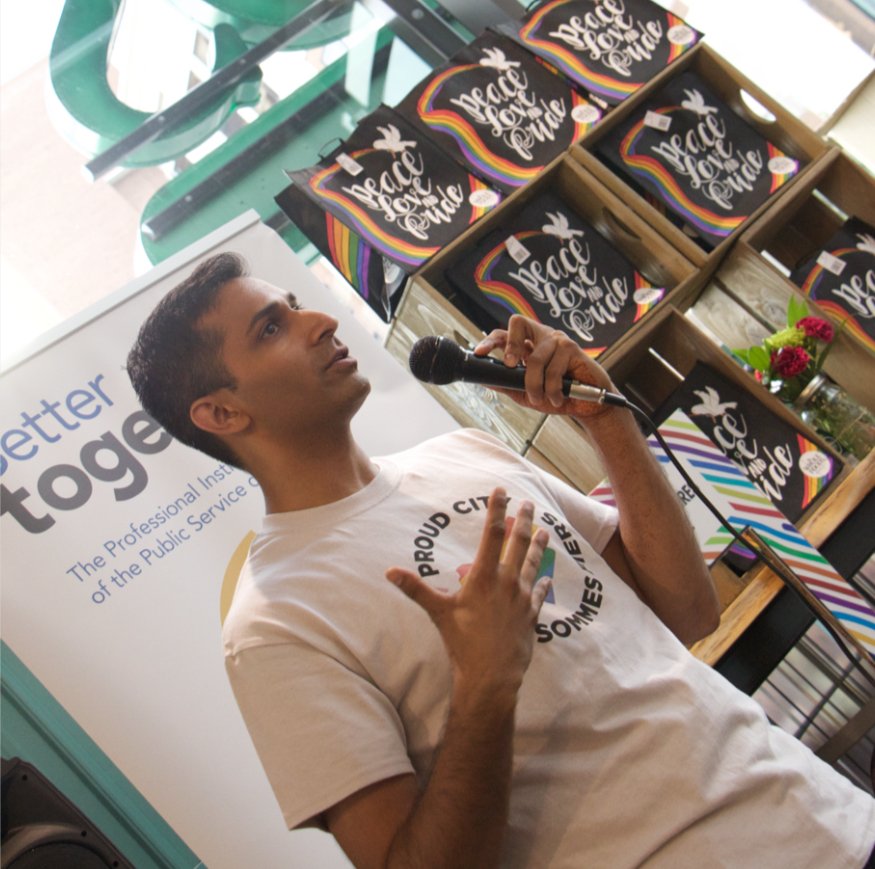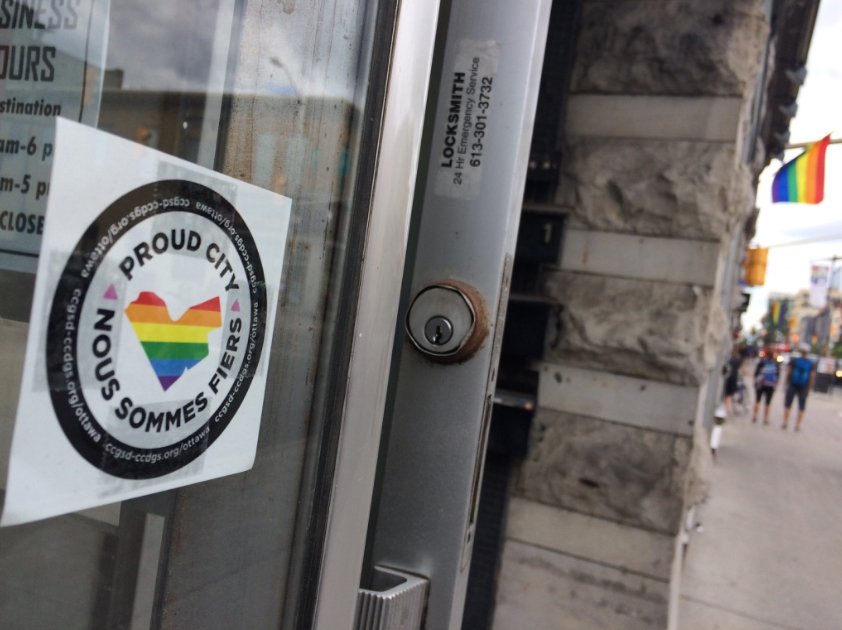A new campaign in Ottawa is calling on the business community and various organizations to promote more inclusive spaces for LGBT people in the region.
Launched by the Canadian Centre for Gender and Sexual Diversity (CCGSD), Proud City has partnered with 97 businesses and organizations by giving them decals to display in windows and adding their names to the campaign website.
“The rainbow stickers we normally see in windows really do help,” explains Caroline Deluce, a coordinator with the CCGSD who says that the Proud City stickers are not intended to be a replacement.
“What makes this campaign different is that we list and link all of our partners on the website so that people can see who is putting themselves out there as a friendly business.”
When asked if there’s a directory for unfriendly businesses, she pauses.
“Nope. We try to focus on the positive rather than the negative,” she says, encouraging anyone who is interested in joining the Proud City initiative to contact the CCGSD for more information.
This is just a start, more work needs to be done, Greg Scriver, the regional director for the Professional Institute of the Public Service of Canada (PIPSC), told attendees at the project’s launch party on August 2nd, 2017.
“I see Proud City as a stepping stone,” he said, describing the campaign as a great example of initiatives that support LGBT people inspiring change, as seen with the recent success of Bill C-16.
Both Scriver and Jeremy Dias, executive director of the CCGSD, call attention to the lack of statistics specific to LGBT-related violence and harassment in Ottawa.
“The Ottawa police don’t record LGBTQ hate crimes,” Dias explains.
“We are still begging them to change that,” he adds, emphasizing that the majority of information out there is anecdotal, outdated, and piecemeal.
“A hate crime is a hate crime,” says constable Marc Soucy, media relations officer at Ottawa Police Service. He explains that hate crimes, as defined by the Criminal Code, are uncategorized.
“We average about 85 cases of hate crime a year in Ottawa,” he says. “Again, we do not categorize them, so the 85 number includes all of them.”
The most recent data from Statistics Canada, released in June 2017, indicates that Ottawa ranked fifth in Canada for police-reported hate crimes overall. It also found that members of the LGBT community were more likely to be victims of violent hate crimes.
“We’re meeting with business owners,” Dias says. He hopes that Proud City will promote awareness of what’s happening in the community and give others a voice.

Jeremy Dias, executive director of the Canadian Centre for Gender and Sexual Diversity (CCGSD),
speaks at Proud City’s launch party hosted by Whole Foods at Lansdowne Park on Aug 2, 2017 in Ottawa. Credit: Ken Ingram/Xtra
He cites a variety of the campaign strategies including a three-year action plan, optional training and workshops from the centre, as well as feedback from coordinators and participants that will be published online this fall.
“What we’re looking for is businesses willing to learn,” Dias says.
“Ultimately it’s the owner’s right as to whether they want to display [the Proud City logo] but I think it’s important to have the sticker, or something on display, to show that the owner has an open door policy,” Scriver adds.
A walk through Ottawa’s gay village this past weekend revealed very few shops with the Proud City logo on display.
“I was shocked that only three businesses [in the Village] signed up so far,” says Michael Deyell, co-owner of Stonewall Wilde’s.
“I immediately jumped on board, no questions asked,” he recalls when coordinators for the campaign recently approached him.
“It’s a free sticker. What do you have to lose?”
It’s unclear why other businesses in Ottawa have yet to sign up for the initiative and explanations are likely varied but at least one entrepreneur explains why she wouldn’t display the sticker.
“I think we’re past the sticker,” says Heather Tory, owner of a local catering company.
“I’m supportive of the community and that means everyone,” she adds. “I think that placing a sticker up, specifically for one group, merely works to exclude others.
“And for me, everyone is treated the same from the moment they walk in the door.”

 Why you can trust Xtra
Why you can trust Xtra


